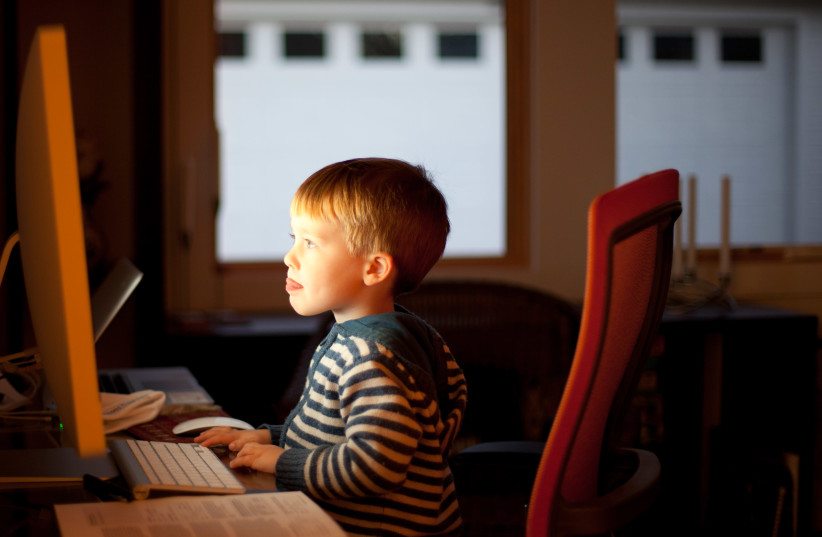Poverty remains rampant among children in Israel, according to data in the statistical book published annually since 1992 by the National Council for the Child.
When it was established in 1980, the council confined itself to limited subjects related to children. However, over the years the number of categories and subcategories increased, and each year the book becomes thicker with masses of information about children from birth to age 18.
The 30th edition of the book was presented on Tuesday to President Isaac Herzog by NCC executive director Vered Winderman, who is a lawyer.
One of the disturbing items among the findings is that there has been a 43% spike in the number of children who are considered to be suicidal, are undergoing psychological therapy through the education system and are being treated by educational psychologists. That number has risen over the past year from 829 to 1,184, which is a relatively small number compared with the 2,764,704 children enrolled in Israel’s schools. But this is extremely worrying for their parents and their teachers.
Moreover, 71% of parents reported that their children were not receiving their social needs because they were forced into long-distance learning. In many cases, parents said their children were directed to Zoom classrooms but were lethargic and paid no attention to the lessons.

In 2021, there was a 39% increase in the number of youngsters ages 12-17 who were diagnosed as being depressed. In addition, there was a 33% increase in fear among youth in general.
Herzog said certain elements of the information contained in the book were problematic. He cited a disturbing trend over the past two years that can be undeniably attributed to the coronavirus pandemic, which has caused enormous social harm to children and has affected their sensitivity.
This can be seen in the spike of reports of sexual harassment and abuse, in social media bullying and in the wide economic gaps that have resulted from the differences in people’s financial status (due to leave without pay, loss of job, illness or death of family breadwinners or closure of business).
Herzog was also concerned that approximately a third of Israel’s children live below the poverty line. Of these, 50.2% are Arab children and 49% are haredi (ultra-Orthodox) Jewish children. In the latter community, where there are many large families, the more children, the greater the poverty.
Every week, Herzog said, he receives scores of applications for clemency, and when he reads the files, he sees that in nearly every case, the problems began in childhood.
He expressed regret that society remains oblivious to the environments in which children live and grow up and that affect their later lives.
Herzog’s wife, Michal, who is a criminal lawyer, said looking around at what has happened over the past two years and observing the fragmentation of society as a result of the health situation, she believes children have suffered the most and require the most attention.
Winderman said the time has come to discuss a social booster in the education system. Protection and therapy for children are now urgently required, she said, adding: “Nothing is presently more important or urgent.”
